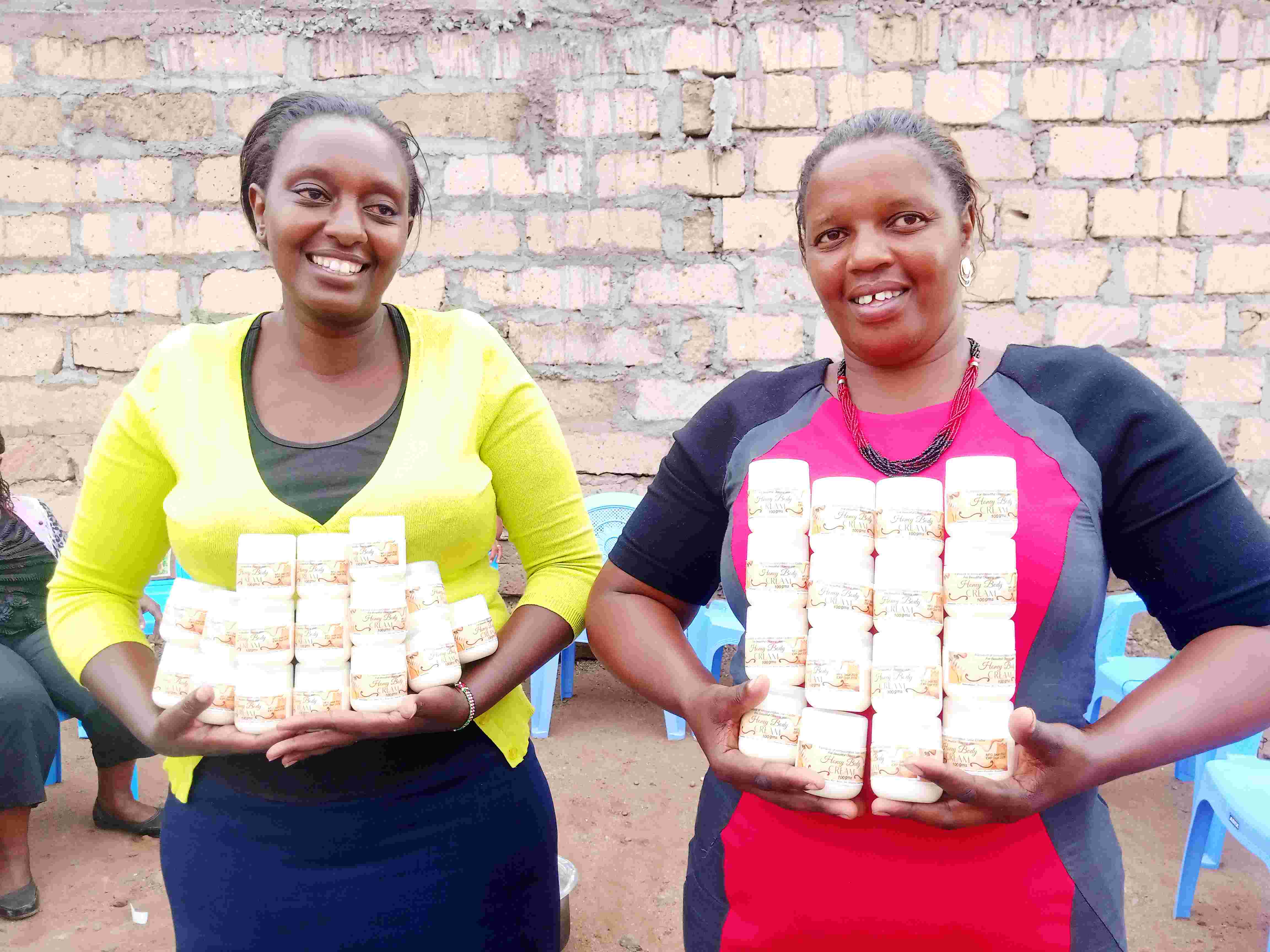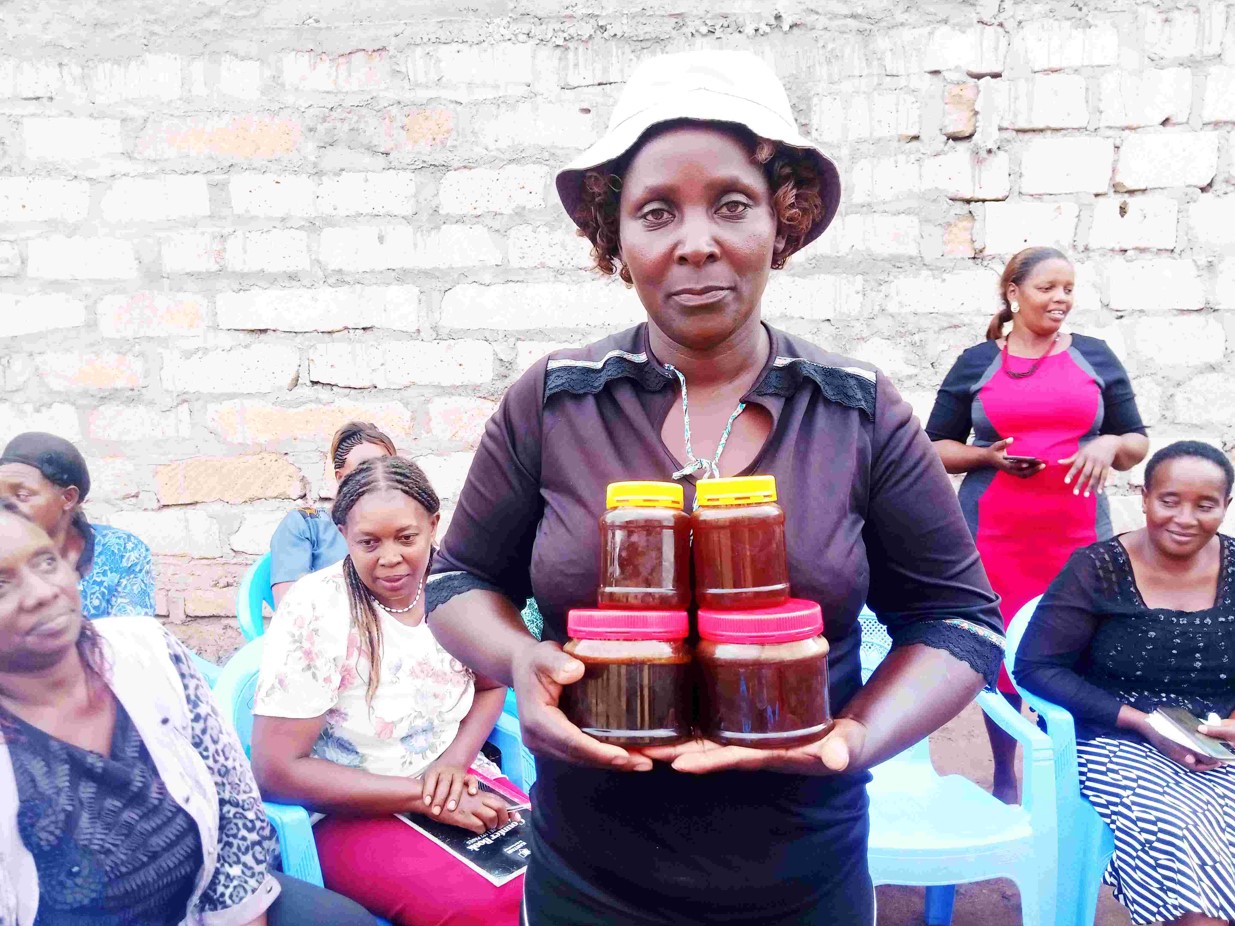Isiolo women profit from the lucrative honey products business

The women in February last year discovered that a bee product they used to discard after harvesting honey from the traditional beehive was more valuable than the honey itself, integrating value addition into farming.
In early 2022, when Isiolo and more than 20 other Arid and Semi-Arid counties were dealing with Kenya's worst drought in four decades, 22 women who worked in menial jobs created the Maili Saba cluster group for social and economic empowerment.
Training in basic financial skills and record keeping equipped them for table banking, an informal saving and loaning system that allows members to save money every time they meet, from which they take unsecured short or long-term loans repayable within an agreed time.
More To Read
- Isiolo courts investors as county pushes public–private partnerships in economic transformation drive
- Senate summons Isiolo, Kericho governors for skipping audit hearings
- Court nullifies Isiolo County’s Sh7.3 billion budget over illegal process, lack of public participation
- Isiolo County unveils 10-year land use plan to curb insecurity and human–wildlife conflict
- Nurses, Isiolo County ink deal, end two-month-long strike
- NDMA funding shortfall delays Sh3.9 billion hunger safety net payments to 133,800 households
“A Sh16,000 boost from a local organisation enabled us kickstart table banking which offered members a platform to each save between Sh200 and Sh500 and access loans at 5 per cent interest that they used to start small businesses for increased income,” the group’s chairperson Mary Ndegwa says.
Seven months later, the women seized an opportunity in beekeeping, realising that the majority of the residents in their neighbourhood within the Isiolo-Meru border were sourcing honey in Isiolo town, about 10 kilometres away.
Beekeeping has traditionally been a preserve of men but is slowly becoming a profitable venture for women in the region who continue to grapple with limited access to and control over resources, impeding their journey to financial independence.
The group began with two Langstroth bee hives costing Sh10,000, partially sponsored by their savings, and were later given a traditional one. Reports show 1100 bee farmers in Isiolo County produce a paltry 200 kilograms of honey every harvest.
The women in February last year discovered that a bee product they used to discard after harvesting honey from the traditional beehive was more valuable than the honey itself, integrating value addition into farming.
 A member of Maili Saba women's cluster displays honey that the group produces and sells during a recent interview on April 20, 2024 - Photo by Waweru Wairimu
A member of Maili Saba women's cluster displays honey that the group produces and sells during a recent interview on April 20, 2024 - Photo by Waweru Wairimu
That was after Mfinyanzi Community Based Organisation organised a training for them on value addition beeswax which is among the insects’ products. Other bee products include pollen, propolis, and royal jelly.
“We were taught how to produce wax from the honeycombs and use it to make body cream. We used to press honey out and throw away the combs,” Mary noted.
For Langstroth beehives, the frames are lifted and honey harvested using an extractor when the combs are three-quarter capped which shows the honey is ripe, she says.
The honeycombs are cut into smaller pieces, placed in a boiler (sufuria) with water and heated until the liquid becomes thick and turns dark brown. It is then sieved to remove the hard particles and the liquid is set aside for several hours to cool and solidify.
Mary explains that the solid wax is then placed in a sufuria and heated at low temperatures to melt it and remove the water. Cooling the wax allows for hardening.
Veronica Kariuki, a member tasked with supervising the production of body cream from beeswax which usually happens twice every month, took us through the process.
A 500-gram piece of wax is placed in a boiler and one-and-a-half-litre of mineral oil or medicinal liquid paraffin, which is a softener, is added and then heated until it melts down and forms a uniform solution, after which, the solution is placed aside to cool for about 10 minutes.
Some 25 grams of Sodium borate, a white powdery emulsifying salt, is added to 120ml of water and heated until bubbles start forming.
“We then whisk the mixture of wax and oil while adding the water with salt slowly until the solution becomes light and fluffy and the colour changes to cream white. Fragrant essential oils can be added to give it a pleasant smell,” Veronica notes, adding that the whisking process takes 20 minutes on average.
The cream should be put in cans while warm because it flows easily, for easy packing.
The ingredients produce 35 pieces of 100-gram cans of body cream which they sell at Sh150 each, making Sh5, 250 from a single production. The women say the cream has softened their skin and made them look younger.
“We share the products amongst ourselves and sell locally but have plans to increase production and target local supermarkets and those in neighbouring counties,” Mary told Eastleigh Voice.
In addition, the ladies sell wax, with a kilogramme costing Sh1000, or the same price as an equivalent amount of honey. Making their wax allows them to save money.
A year into the business, the women say it has been rewarding and has improved their lives through access to basic needs, helping them beat hunger.
They can now support their husbands in fending for their families and paying school fees for their children.
“There has been peace in our homes because we no longer bother our husbands with all manner of expenses but are now helping them cater for some needs thanks to table banking and returns from the sale of body cream,” one of the women said.
Part of the money made from the sale of honey and body cream is shared amongst the members and the rest is pumped into the group to support its various activities including corporate social responsibility.
Isiolo County Livestock Chief Officer Isaiah Epuri said the devolved government was keen on supporting bee farmers to increase productivity through value addition and linking them to markets.
The county government and E4Impact recently issued 300 Langstroth bee hives, equipment and accessories to 10 women groups in five wards to promote diversification of livelihoods and increase local honey production to three tonnes per harvest, up from the current 200 kilogrammes.
Currently operating from one of the members’ rented homes, Maili Saba cluster women dream of owning land where they can undertake large production.
“We are keen on ensuring all our members own plots of land because the majority of us are living in rental houses,” Mary said.
Access to land will enable them to undertake farming activities for increased income and family food and nutritional security.
Top Stories Today















































